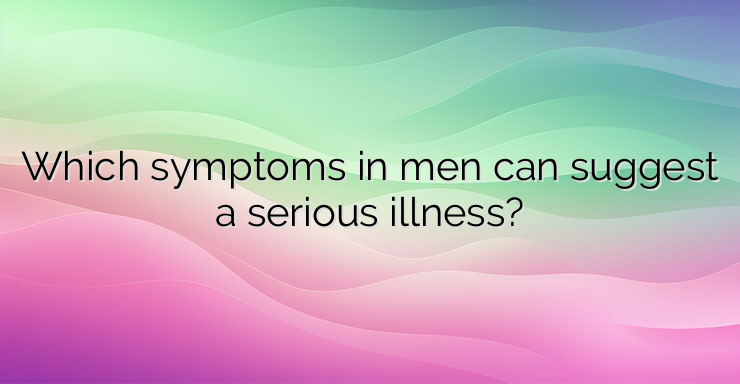According to studies, men tend to visit the doctor less often than women. They more often miss screenings, ignore symptoms, or delay getting medical help when they need it. In some cases, these delays can be dangerous. Early diagnosis and treatment can often improve outcomes for many health conditions. Heavy bleeding, chest pain, and high fever are symptoms that require medical attention, but there are other symptoms that may be caused by a serious condition. Shortness of breath Chest pain is a common sign of a heart attack, but there are other signs, such as shortness of breath. Although the symptoms of a heart attack can vary from case to case, there are early warning signs when a person is at risk of a heart attack, such as shortness of breath on exertion. For example, if a patient finds it difficult to catch his breath after a walk, this may be an early sign of ischemic heart disease. In this condition, there is a partial or complete blockage of an artery that supplies blood to the heart. A complete blockage can cause a heart attack. It is important to seek immediate medical attention if the patient has symptoms of a heart attack, such as: Pressure in the chest area; Tightness in the chest; Severe shortness of breath; Dizziness Unexplained weight loss Unless the patient is actively trying to lose weight, weight loss may be a cause for concern. Unexplained weight loss is often one of the first signs of many diseases, including cancer. It is important to see a doctor and let him know about the problem. Bloody or black stools The color of stools can change from day to day, depending on the food a person eats and the medications they take. For example, the consumption of beets can cause the stools to turn red. Similarly, iron supplements and some diarrhea medications, such as bismuth subsalicylate, can temporarily discolor stools black or brown. Coloring in the brown or green spectrum is normal, but if the stool is black, bloody, or pale, it could mean there is a problem. In some cases, this problem can be serious. Black stools may be an indication of bleeding in the upper gastrointestinal tract. Blood in the stool may indicate bleeding from the lower gastrointestinal tract. You should go for an examination to check for signs of bleeding, hemorrhoids, or ulcers. Lightly colored stools can signal problems with the liver or bile ducts. Bibliography: Leung L, et al. Chronic constipation: An evidence-based review Healthline. Health Symptoms Men Shouldn’t Ignore Kendall BJ, et al. The risk of Barrett’s esophagus associated with abdominal obesity in males and females


Leave a Reply